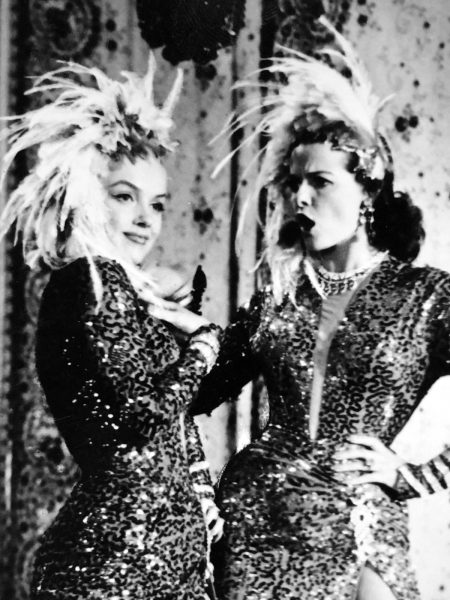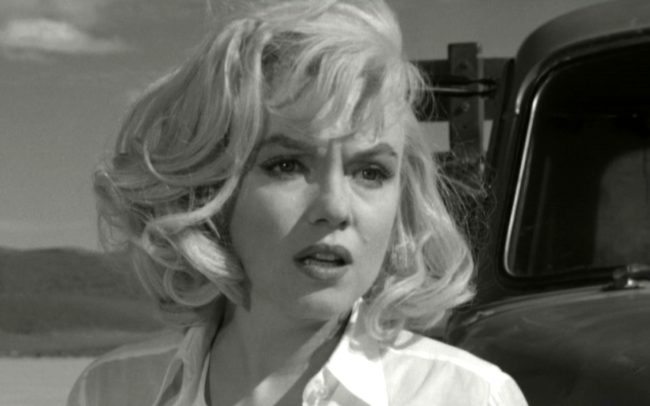
Gentlemen Prefer Blondes is one of Marilyn’s most popular movies, and it just seems to get better with age. In an article for Bust, Samantha Mann describes how it surpassed her expectations.
“Lorelei and Dorothy are the makers and shakers throughout the film. They are the ones who make events happen; events are not happening to them. Often in film, women are on the receiving end of action, or stand adjacent to it, but here, the women act on their own desires and motives to move the action forward. They unabashedly chase the things they want—Monroe’s character is chasing money, and Russell’s character is chasing a poor man to love. It would be easy to reduce Monroe’s character to merely a gold-digger, but she is looking for power and access in a culture driven by money. She is upfront about her intentions, and does not let society’s thoughts about her behavior change her plan of action.
Lorelei seems like the classic dumb blonde throughout, but she routinely gives the audience glimpses that this is merely an act. At one point, she blatantly states, ‘I can be smart when it’s important, but most men don’t like it,’ so she’s literally giving men what they want as a means to an end.
Many have noted that not one scene in the movie passes the Bechdel-Wallace test, which didn’t even exist until 1985, but it should be noted that passing the Bechdel test does not inherently make art feminist. Towards the end of the film, Lorelei’s boyfriend tells her that she needs to change if she wants to maintain their relationship. Without hesitation, she declares this is the women she is, and he can take her or leave her. I find it feminist to stick to yourself and motives, and not wilt due to the desires of men. Overall, Gentlemen Prefer Blondes is a surprisingly feminist, funny buddy comedy.”
